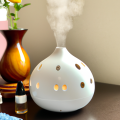-
Table of Contents
- Introduction
- The Dangers of Diffusing Certain Oils: What Oils Should You Avoid?
- Essential Oil Safety: What Oils Should You Not Diffuse?
- Essential Oil Blends: What Oils Should You Not Mix?
- Essential Oil Diffusers: What Oils Should You Not Use?
- Essential Oil Allergies: What Oils Should You Avoid?
- Essential Oil Safety for Pets: What Oils Should You Not Diffuse?
- Essential Oil Safety for Children: What Oils Should You Not Diffuse?
- Q&A
- Conclusion
Introduction
Essential oils are a popular way to improve the atmosphere of a room, but not all oils are safe to diffuse. Some essential oils can be toxic or irritating when inhaled, and some can even cause allergic reactions. In this article, we’ll discuss which oils you should avoid diffusing and why. We’ll also provide some tips on how to safely use essential oils in your home.
The Dangers of Diffusing Certain Oils: What Oils Should You Avoid?
Essential oils are becoming increasingly popular for their therapeutic benefits, but it is important to be aware of the potential risks associated with diffusing certain oils. While essential oils are generally safe to use, some oils can be toxic if used improperly. It is important to be aware of the oils that should be avoided when diffusing.
The most important oil to avoid when diffusing is wintergreen oil. Wintergreen oil contains a chemical called methyl salicylate, which is a derivative of aspirin. Inhaling this oil can cause serious respiratory problems, including difficulty breathing, coughing, and wheezing. Additionally, ingesting wintergreen oil can be toxic and can cause nausea, vomiting, and even death.
Other oils that should be avoided when diffusing include camphor, eucalyptus, and pennyroyal. Camphor oil can cause skin irritation and can be toxic if ingested. Eucalyptus oil can cause skin irritation and can be toxic if ingested in large amounts. Pennyroyal oil is highly toxic and can cause serious health problems if inhaled or ingested.
It is also important to be aware of the potential risks associated with diffusing oils around children and pets. Some oils, such as tea tree oil, can be toxic to cats and dogs if ingested. Additionally, some oils, such as peppermint oil, can be irritating to the skin and eyes of children.
When diffusing essential oils, it is important to be aware of the potential risks associated with certain oils. Wintergreen oil, camphor oil, eucalyptus oil, pennyroyal oil, tea tree oil, and peppermint oil should all be avoided when diffusing. Additionally, it is important to be aware of the potential risks associated with diffusing oils around children and pets. By taking the necessary precautions, you can safely enjoy the therapeutic benefits of essential oils.
Essential Oil Safety: What Oils Should You Not Diffuse?
Essential oils are a popular and natural way to improve the atmosphere of a room, but it is important to be aware of the safety considerations when diffusing essential oils. Certain essential oils should not be diffused due to their potential to cause adverse reactions.
Essential oils that should not be diffused include those that are known to be phototoxic, such as bergamot, lemon, lime, and grapefruit. These oils contain compounds that can cause skin irritation and sensitivity when exposed to sunlight. Additionally, some essential oils, such as cinnamon, clove, oregano, and thyme, are known to be irritants and should not be diffused.
Essential oils that are known to be neurotoxic, such as wintergreen, pennyroyal, and camphor, should also not be diffused. These oils contain compounds that can cause neurological symptoms such as headaches, dizziness, and confusion.
Finally, essential oils that are known to be skin sensitizers, such as lavender, tea tree, and ylang ylang, should not be diffused. These oils can cause skin irritation and allergic reactions in some people.
It is important to be aware of the potential risks associated with diffusing essential oils. If you are unsure about which oils are safe to diffuse, it is best to consult a qualified aromatherapist or healthcare professional.
Essential Oil Blends: What Oils Should You Not Mix?
When creating essential oil blends, it is important to be aware of which oils should not be mixed together. Certain combinations of essential oils can be dangerous and can cause skin irritation, allergic reactions, and other adverse effects.
The following essential oils should not be mixed together:
• Peppermint and eucalyptus: These two oils should not be mixed together due to their high menthol content. This combination can cause skin irritation and can be dangerous if inhaled.
• Tea tree and lavender: These two oils should not be mixed together due to their high levels of camphor. This combination can cause skin irritation and can be dangerous if inhaled.
• Rosemary and sage: These two oils should not be mixed together due to their high levels of thujone. This combination can cause skin irritation and can be dangerous if inhaled.
• Cinnamon and clove: These two oils should not be mixed together due to their high levels of eugenol. This combination can cause skin irritation and can be dangerous if inhaled.
• Lemon and lime: These two oils should not be mixed together due to their high levels of limonene. This combination can cause skin irritation and can be dangerous if inhaled.
It is important to be aware of which essential oils should not be mixed together in order to avoid any potential adverse effects. If you are unsure about which oils to mix, it is best to consult a professional aromatherapist.
Essential Oil Diffusers: What Oils Should You Not Use?
Essential oil diffusers are a great way to enjoy the therapeutic benefits of essential oils. However, it is important to note that not all essential oils are suitable for use in a diffuser. Some essential oils can be irritating to the skin, eyes, and respiratory system, and can even be toxic if used in large amounts. Therefore, it is important to be aware of which essential oils should not be used in a diffuser.
The following essential oils should not be used in a diffuser:
• Cinnamon: Cinnamon essential oil is highly concentrated and can be irritating to the skin, eyes, and respiratory system.
• Clove: Clove essential oil is also highly concentrated and can be irritating to the skin, eyes, and respiratory system.
• Oregano: Oregano essential oil is very strong and can be irritating to the skin, eyes, and respiratory system.
• Peppermint: Peppermint essential oil is very strong and can be irritating to the skin, eyes, and respiratory system.
• Tea Tree: Tea tree essential oil is very strong and can be irritating to the skin, eyes, and respiratory system.
• Wintergreen: Wintergreen essential oil is very strong and can be irritating to the skin, eyes, and respiratory system.
• Eucalyptus: Eucalyptus essential oil is very strong and can be irritating to the skin, eyes, and respiratory system.
• Lemon: Lemon essential oil is very strong and can be irritating to the skin, eyes, and respiratory system.
• Bergamot: Bergamot essential oil is very strong and can be irritating to the skin, eyes, and respiratory system.
• Thyme: Thyme essential oil is very strong and can be irritating to the skin, eyes, and respiratory system.
• Rosemary: Rosemary essential oil is very strong and can be irritating to the skin, eyes, and respiratory system.
In addition to the essential oils listed above, it is important to note that some essential oils can be toxic if used in large amounts. These include camphor, pennyroyal, and wintergreen. Therefore, it is important to use caution when using these essential oils in a diffuser.
It is also important to note that some essential oils can be phototoxic, meaning that they can cause skin irritation when exposed to sunlight. These include bergamot, lemon, lime, and orange. Therefore, it is important to avoid using these essential oils in a diffuser if you plan to be in direct sunlight.
Finally, it is important to remember that essential oils should never be ingested. Ingesting essential oils can be dangerous and should be avoided.
By following these guidelines, you can ensure that you are using essential oils safely and effectively in your diffuser.
Essential Oil Allergies: What Oils Should You Avoid?
Essential oils are a popular natural remedy for a variety of ailments, but they can also cause allergic reactions in some people. Allergies to essential oils can range from mild skin irritation to more serious reactions, such as difficulty breathing. It is important to be aware of the potential for allergic reactions and to know which oils to avoid if you have an allergy.
The most common essential oils that can cause allergic reactions are those derived from plants in the family Asteraceae, such as chamomile, eucalyptus, and yarrow. Other essential oils that can cause allergic reactions include lavender, peppermint, and tea tree oil.
If you have an allergy to any of these essential oils, it is important to avoid them. You should also be aware that some essential oils are made up of a blend of different oils, so it is important to read the label carefully to make sure that none of the ingredients are ones that you are allergic to.
In addition to avoiding essential oils that you are allergic to, it is also important to take precautions when using essential oils. Always dilute essential oils before applying them to the skin, and never apply them directly to the skin without diluting them first. It is also important to avoid using essential oils on broken or irritated skin, as this can increase the risk of an allergic reaction.
If you experience any signs of an allergic reaction after using an essential oil, such as itching, redness, or difficulty breathing, stop using the oil immediately and seek medical attention.
By being aware of the potential for allergic reactions and taking precautions when using essential oils, you can help to reduce your risk of experiencing an allergic reaction.
Essential Oil Safety for Pets: What Oils Should You Not Diffuse?
Essential oils can be a great way to improve the health and wellbeing of your pet, but it is important to be aware of the potential risks associated with their use. While some essential oils can be beneficial for pets, others can be toxic and should be avoided.
When diffusing essential oils around your pet, it is important to be aware of the potential risks associated with their use. Some essential oils can be toxic to pets, and even those that are generally considered safe can cause irritation or other adverse reactions in some animals.
The following essential oils should not be diffused around pets:
• Tea tree oil (Melaleuca alternifolia): This oil is toxic to cats and can cause skin irritation in dogs.
• Peppermint oil (Mentha piperita): This oil can be toxic to cats and can cause skin irritation in dogs.
• Cinnamon oil (Cinnamomum zeylanicum): This oil can be toxic to cats and can cause skin irritation in dogs.
• Clove oil (Syzygium aromaticum): This oil can be toxic to cats and can cause skin irritation in dogs.
• Wintergreen oil (Gaultheria procumbens): This oil can be toxic to cats and can cause skin irritation in dogs.
• Eucalyptus oil (Eucalyptus globulus): This oil can be toxic to cats and can cause skin irritation in dogs.
• Citrus oils (Citrus spp.): These oils can be toxic to cats and can cause skin irritation in dogs.
• Pine oil (Pinus spp.): This oil can be toxic to cats and can cause skin irritation in dogs.
• Ylang ylang oil (Cananga odorata): This oil can be toxic to cats and can cause skin irritation in dogs.
• Pennyroyal oil (Mentha pulegium): This oil can be toxic to cats and can cause skin irritation in dogs.
• Sweet birch oil (Betula lenta): This oil can be toxic to cats and can cause skin irritation in dogs.
• Juniper berry oil (Juniperus communis): This oil can be toxic to cats and can cause skin irritation in dogs.
It is also important to note that some essential oils can be irritating to the respiratory system of pets, so it is best to avoid diffusing them in areas where your pet spends a lot of time. Additionally, some essential oils can be irritating to the skin, so it is best to avoid diffusing them directly on your pet.
When diffusing essential oils around your pet, it is important to use caution and to be aware of the potential risks associated with their use. If you have any questions or concerns, it is best to consult with your veterinarian before using essential oils around your pet.
Essential Oil Safety for Children: What Oils Should You Not Diffuse?
When it comes to essential oil safety for children, it is important to be aware of which oils should not be diffused. Diffusing essential oils can be a great way to enjoy the benefits of aromatherapy, but it is important to be aware of the potential risks associated with certain oils.
The following essential oils should not be diffused around children:
• Eucalyptus: This oil can be very stimulating and can cause respiratory issues in children.
• Peppermint: This oil can be very stimulating and can cause respiratory issues in children.
• Rosemary: This oil can be very stimulating and can cause respiratory issues in children.
• Cinnamon: This oil can be very stimulating and can cause respiratory issues in children.
• Clove: This oil can be very stimulating and can cause respiratory issues in children.
• Tea Tree: This oil can be very stimulating and can cause respiratory issues in children.
• Thyme: This oil can be very stimulating and can cause respiratory issues in children.
• Wintergreen: This oil can be very stimulating and can cause respiratory issues in children.
• Oregano: This oil can be very stimulating and can cause respiratory issues in children.
• Lemongrass: This oil can be very stimulating and can cause respiratory issues in children.
• Bergamot: This oil can be very stimulating and can cause respiratory issues in children.
• Anise: This oil can be very stimulating and can cause respiratory issues in children.
• Sage: This oil can be very stimulating and can cause respiratory issues in children.
It is also important to note that some essential oils can be toxic if ingested, so it is important to keep them out of reach of children. Additionally, some essential oils can cause skin irritation, so it is important to use them with caution.
In conclusion, it is important to be aware of which essential oils should not be diffused around children. These oils can be very stimulating and can cause respiratory issues in children. Additionally, some essential oils can be toxic if ingested, so it is important to keep them out of reach of children.
Q&A
1. What oils should you not diffuse?
Essential oils that should not be diffused include cinnamon, clove, oregano, thyme, wintergreen, and pennyroyal. These oils can be irritating to the skin and mucous membranes, and can cause respiratory irritation.
2. Are there any other oils that should not be diffused?
Yes, some other essential oils that should not be diffused include camphor, eucalyptus, and tea tree oil. These oils can be toxic if inhaled in large amounts, and can cause skin irritation.
3. Are there any essential oils that are safe to diffuse?
Yes, there are many essential oils that are safe to diffuse, such as lavender, chamomile, lemon, and peppermint. These oils can help to reduce stress and anxiety, and can also help to improve sleep quality.
4. Is it safe to diffuse essential oils around pets?
No, it is not recommended to diffuse essential oils around pets. Some essential oils can be toxic to pets, and can cause respiratory irritation. It is best to keep pets away from diffused essential oils.
5. Is it safe to diffuse essential oils around children?
Yes, it is generally safe to diffuse essential oils around children, as long as the oils are diluted properly and the room is well-ventilated. However, it is important to keep in mind that some essential oils can be irritating to the skin and mucous membranes, so it is best to consult with a doctor before diffusing essential oils around children.
6. Is it safe to diffuse essential oils in a closed room?
No, it is not recommended to diffuse essential oils in a closed room. Essential oils can be irritating to the skin and mucous membranes, and can cause respiratory irritation. It is best to keep the room well-ventilated when diffusing essential oils.
7. How often should essential oils be diffused?
It is best to limit the amount of time that essential oils are diffused. Generally, it is recommended to diffuse essential oils for no more than 30 minutes at a time.
Conclusion
In conclusion, it is important to be aware of the oils that should not be diffused. These include essential oils that are known to be toxic, such as camphor, pennyroyal, and wintergreen, as well as those that are known to be irritating, such as cinnamon, clove, and oregano. Additionally, it is important to be aware of the potential risks associated with diffusing essential oils, such as skin irritation, respiratory irritation, and potential toxicity. Therefore, it is important to use caution when diffusing essential oils and to consult with a qualified aromatherapist or healthcare provider before using any essential oil.




